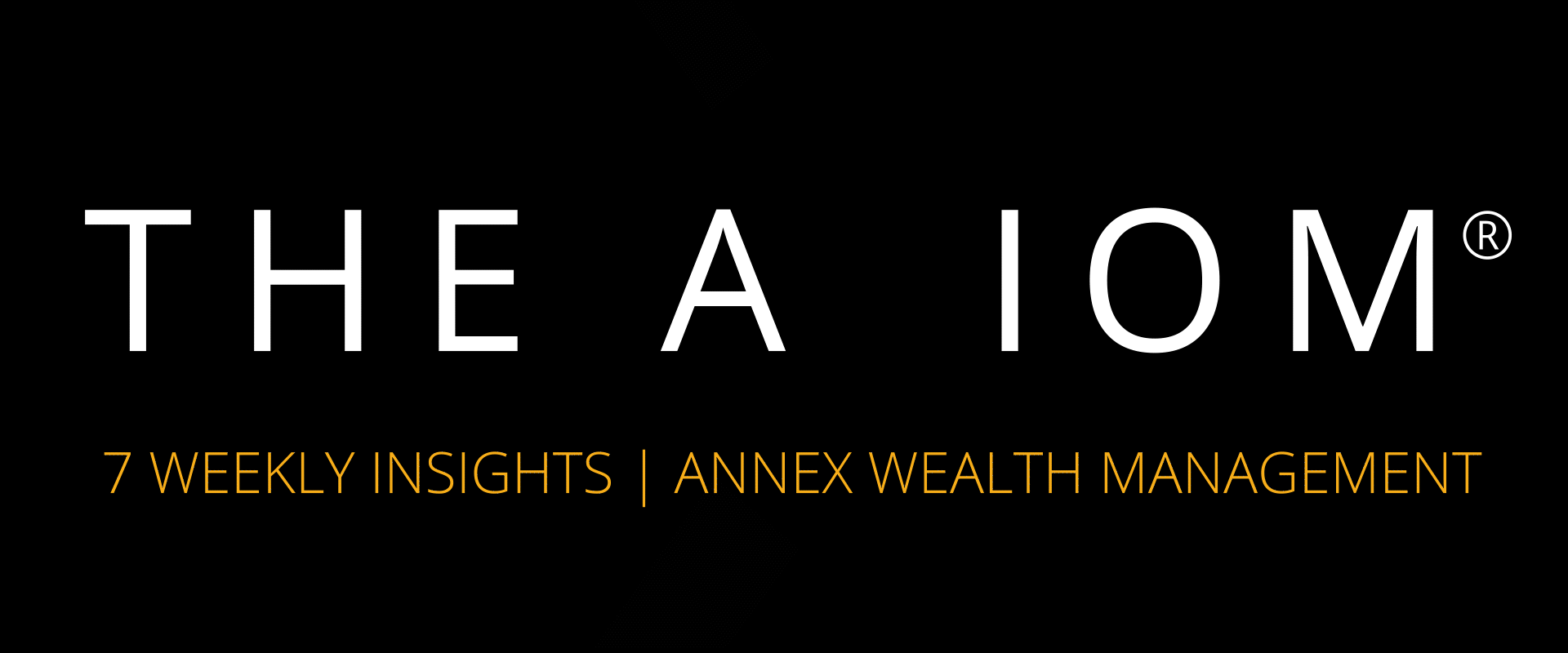
With the NASDAQ down in correction territory, many experts are debating what’s driving volatility – a flagging economy, high interest rates, or some other force. Some believe the markets are simply shifting from tech to other areas. Annex Wealth Management’s Dave Spano and Derek Felske discuss.

A recent survey, called the Consumer Financial Behavior Study, found that a household with $1.2 million in assets reported higher levels of happiness when working with a financial advisor compared to those who didn’t have an advisor.
BACK TO TOP ↑

Search “how to allocate your portfolio” on your favorite search engine, and you’ll be treated to close to 12 million different results. Most of us don’t have the time or patience to dig through all the “expert” opinions on asset allocation. Even if you did have time to review them all, you’d still have to figure out which one is right for you.
This week’s MoneyDo is to know what you own, and why. Reviewing your holdings will help you understand your portfolio construction, and weigh, accept, or reject all the advice.
You may have heard some of the rules of thumb on how your portfolio should be allocated. Some old adages revolve around your age: for example, one common tenet is to take 100 minus your age to determine how much of your portfolio should be invested in equities.
Based on that rule, if you’re 35, then you should have 65% in stocks and 35% in bonds. If you’re 65, then you should have 35% in stocks and 65% in bonds. Since we’re living longer these days, a modern version of this axiom says to start with 120 instead of 100.
While there is some truth behind these old-fashioned ideas, they have never been a fit for everyone.
In reality, when deciding how aggressive or conservative your portfolio should be, age is just one of many factors to consider. Wiser investors often weigh other questions, like how much you’re investing, how long until you need to access your investments, whether you need income from the portfolio, your goals with your portfolio of assets…the list goes on and on.
As you review your portfolio, ask these questions:
- Are you considering key factors when developing your asset allocation?
- Are you too concentrated in one area of the markets, and disregarding another area all together?
- Does your portfolio work with or against your financial plan?
- Does your advisor (or do you yourself) use a cookie-cutter approach based on an “old reliable” rule of thumb?
- How do you react when the markets sell off? Did you make changes in March of 2020?
Not to make it more complicated, but with all that we have thought through so far, we have yet to think about the markets themselves. Are we in an environment where stocks are more attractive than bonds? What is the level of risks in the market right now? Should we be overweight US Equities or International Equities? What types of Fixed Income should we be using, is it the right time to use High Yield Bonds, or should we be defensive?
If you need help, Annex Wealth Management can assist you in identifying and defining your personal asset allocation. We’ll ask important questions, listen closely and rely on our expertise and technology to have your asset allocation align with your financial plan and your risk capacity.
BACK TO TOP ↑
This week’s Ask Annex response was prepared by Joseph Maller, CPA:
Our tax reference guide is one of Annex Wealth Management’s most popular annual publications. In it, we provide tables of Federal tax rates for various circumstances, from Head of Household to C corporations.
If you have questions or seek insight into your tax plan, set up a time to talk to a member of our tax team. We would be happy to help.
Download the Tax Reference Guide Here
– Joseph Maller, CPA® | Manager, Annex Tax Services
BACK TO TOP ↑
BACK TO TOP ↑
BACK TO TOP ↑

REGISTER
BACK TO TOP ↑